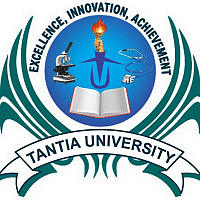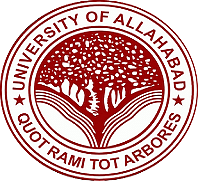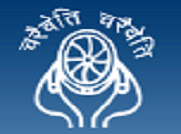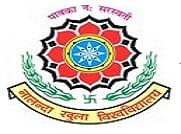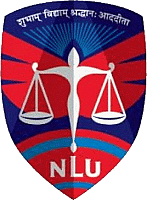Introduction about Ph. D in
Childhood care
Ph.D. in Childhood Care from best
college is an advanced academic degree program focused on the comprehensive
study of child development, well-being, education, and related fields. This
interdisciplinary field delves into understanding the physical, cognitive,
emotional, and social aspects of children's growth and development from infancy
through adolescence.
Students pursuing a Ph.D. in Childhood Care
engage in rigorous research, theoretical analysis, and practical applications
to address various aspects of children's lives. This may include exploring
topics such as early childhood education, child psychology, pediatric health
and nutrition, child welfare policies, parenting practices, and socio-cultural
influences on child development.
The program typically involves coursework in
advanced research methodologies, child development theories, and relevant
disciplines such as psychology, education, sociology, neuroscience, and public
health. Students are encouraged to conduct original research, contribute to
scholarly literature, and develop innovative interventions or policies that
promote the well-being and positive development of children.
Graduates of a Ph.D. in Childhood Care are
prepared for diverse career paths, including academia, research institutions,
government agencies, non-profit organizations, advocacy groups, and
international development agencies. They may work as professors, researchers,
policymakers, consultants, program directors, or advocates, contributing to the
advancement of knowledge and practices that support the healthy development of
children worldwide.
What is admission process
for Ph. D in Childhood care?
The admission process 2024 Ph.D. in Childhood Care typically varies depending on the university and program
requirements. However, here's a general overview of what the process might
entail:
Research Programs: Begin by researching Ph.D. programs in Childhood Care or related
fields at various universities. Look for programs that align with your research
interests, career goals, and academic background.
Prerequisites: Ensure you meet the prerequisites for admission, which usually include
a relevant master's degree in fields such as child development, early childhood
education, psychology, sociology, public health, or a related discipline. Some
programs may accept applicants with a bachelor's degree, but they may require
additional coursework or experience.
Application: Complete the application form for the Ph.D. program, following the
instructions provided by the university's admissions office. This typically
involves submitting personal information, academic transcripts, letters of
recommendation, a statement of purpose (or personal statement), and a resume or
curriculum vitae (CV).
Standardized Tests: Some universities may require standardized test scores, such as the
GRE (Graduate Record Examination) or subject-specific tests. Check the specific
requirements of each program you're interested in.
Research Proposal: Many Ph.D. programs require applicants to submit a research proposal
outlining their proposed research topic, objectives, methodology, and potential
contributions to the field. This is a critical part of the application, as it
demonstrates your research interests, capabilities, and readiness for
doctoral-level study.
Interview: Shortlisted candidates may be invited for an interview as part of the
selection process. This interview may be conducted in person or remotely and
provides an opportunity for the admissions committee to assess your fit for the
program and clarify any questions about your application.
Funding: Investigate funding opportunities, such as scholarships, grants,
assistantships, or fellowships, available through the university or external
sources. Some Ph.D. programs offer full or partial funding to admitted
students, covering tuition fees and providing a stipend for living expenses.
Decision: After reviewing applications, the admissions committee will notify
applicants of their admission status. If admitted, you'll receive details about
enrollment procedures, funding offers (if applicable), and any additional
requirements or deadlines.
Enrolment: Upon acceptance, complete the enrollment process by submitting any
required documentation, paying tuition fees, and registering for courses
according to the university's instructions.
It's essential to carefully review the
admission requirements and deadlines for each program you're interested in and
to prepare a strong application that highlights your academic achievements,
research experience, and passion for studying childhood care. Additionally,
reaching out to faculty members or current students in the program can provide
valuable insights and guidance throughout the application process.
What is eligibility process
for Ph. D in Childhood care?
The eligibility criteria for Ph.D. in Childhood Care may vary depending
on the specific requirements of the university and program. However, here's a
general overview of typical eligibility criteria:
Educational Background: Applicants are typically required to have a relevant master's degree
in a field related to childhood care, child development, early childhood
education, psychology, sociology, public health, or a closely related
discipline. Some programs may consider applicants with a bachelor's degree,
especially if they have extensive relevant experience or coursework.
Academic Achievement: Applicants should have a strong academic record, usually demonstrated
by a high grade point average (GPA) in their previous graduate and
undergraduate studies. Most programs have minimum GPA requirements for
admission.
Research Experience: While not always mandatory, having research experience, such as
conducting independent research projects, publishing academic papers, or
presenting at conferences, can strengthen an applicant's candidacy. Programs
may require applicants to submit a writing sample or research proposal as part
of the application.
Standardized Test Scores: Some universities may require applicants to submit scores from
standardized tests such as the GRE (Graduate Record Examination) or
subject-specific tests. However, many programs are moving towards test-optional
admissions, especially in light of the COVID-19 pandemic.
Letters of Recommendation: Applicants are typically required to submit letters of recommendation
from academic or professional references who can attest to their
qualifications, research abilities, and potential for success in a doctoral
program. These letters should provide insight into the applicant's academic and
research capabilities, work ethic, and suitability for doctoral study.
Statement of Purpose: Most Ph.D. programs require applicants to submit a statement of
purpose or personal statement outlining their academic background, research
interests, career goals, and reasons for pursuing a Ph.D. in Childhood Care.
This document allows applicants to articulate their motivations and aspirations
and demonstrate their fit for the program.
English Proficiency: For international applicants whose native language is not English,
proof of English proficiency is usually required. This may be demonstrated
through standardized tests such as the TOEFL (Test of English as a Foreign
Language) or IELTS (International English Language Testing System).
Interview (if applicable): Some programs may conduct interviews with shortlisted candidates as
part of the selection process. This interview may provide an opportunity for
the admissions committee to assess the applicant's fit for the program,
research interests, and readiness for doctoral-level study.
It's important for prospective applicants to
carefully review the eligibility criteria and application requirements of each
Ph.D. program they are interested in to ensure they meet the necessary
qualifications and to prepare a strong application package that highlights
their academic achievements, research experience, and passion for studying
childhood care.
What is syllabus for Ph. D
in Childhood care ?
The syllabus for Ph.D. in Childhood Carecan vary significantly depending on the specific program, university, and the
research interests of the student. However, here is a broad overview of topics
that may be covered in such a program:
Advanced Research
Methodologies: Courses in advanced research methodologies
provide students with the theoretical and practical knowledge necessary to
design and conduct research in childhood care. Topics may include quantitative
and qualitative research methods, experimental design, data analysis
techniques, and ethical considerations in research with children.
Theories of Child
Development: Ph.D. students in childhood care often
study advanced theories of child development from a multidisciplinary
perspective. This may include exploring theories from psychology, sociology,
education, neuroscience, and anthropology to gain a comprehensive understanding
of how children grow, learn, and develop within various contexts.
Advanced Topics in Early
Childhood Education: Courses in early
childhood education focus on theories, policies, and practices related to
educating young children from birth through age eight. Topics may include
curriculum development, assessment and evaluation, cultural and linguistic
diversity, inclusive education, and the role of play in learning.
Child Psychology and
Behavioral Science: Students may delve into
advanced topics in child psychology and behavioral science, including cognitive
development, social-emotional development, personality development, attachment
theory, motivation, and self-regulation. These courses provide insights into
the psychological processes underlying children's behavior and development.
Health and Nutrition in
Childhood: Courses in health and nutrition explore the
impact of diet, exercise, healthcare access, and environmental factors on
children's health and well-being. Students may examine topics such as
nutritional requirements during different stages of childhood, prevention and
treatment of childhood illnesses, and interventions to promote healthy
lifestyles.
Family and Community
Dynamics: Ph.D. students in childhood care often study the role of families,
communities, and societal factors in shaping children's development and
well-being. Courses may explore family systems theory, parent-child
relationships, cultural influences on child-rearing practices, community-based
interventions, and the impact of poverty, discrimination, and social inequality
on children and families.
Policy Analysis and
Advocacy: Courses in policy analysis and advocacy equip students with the
knowledge and skills to critically evaluate policies affecting children and
advocate for evidence-based practices and interventions. Topics may include
child welfare policies, early childhood education policies, healthcare
policies, and international conventions and treaties related to children's
rights.
Special Topics and
Seminars: Ph.D. programs often offer seminars or special topics courses on
emerging issues, current research trends, and interdisciplinary perspectives in
childhood care. These courses provide opportunities for students to engage in
in-depth discussions, present their research, and collaborate with faculty and
peers on cutting-edge projects.
Dissertation Research and
Writing: A significant portion of the Ph.D. program is dedicated to conducting
original research and writing a dissertation that contributes new knowledge to
the field of childhood care. Students work closely with faculty advisors to
develop research proposals, collect and analyze data, and write scholarly
manuscripts that demonstrate their expertise and scholarly contributions.
This is a general overview of the syllabus
for a Ph.D. in Childhood Care, but specific courses and requirements may vary
depending on the program and university. Students are encouraged to consult
with program advisors and review the curriculum of individual programs to gain
a comprehensive understanding of the coursework and research opportunities
available.






